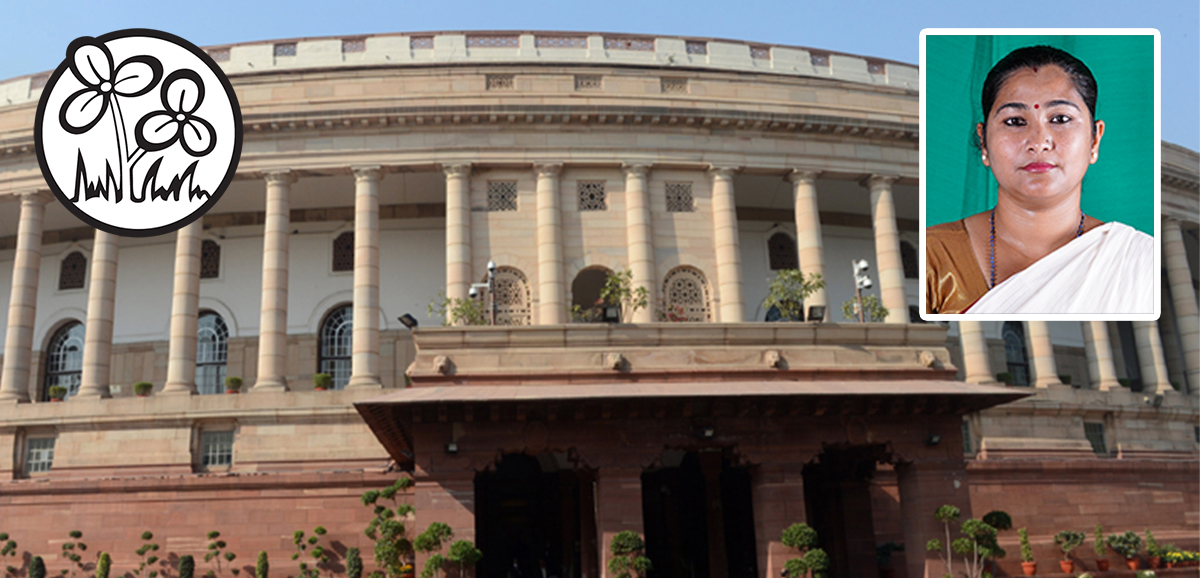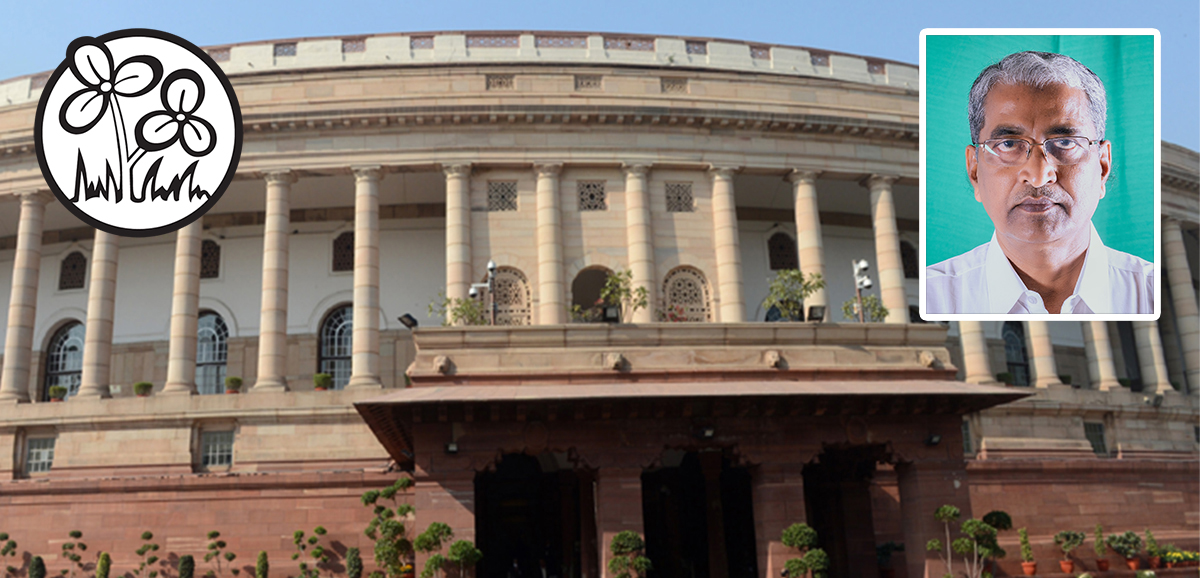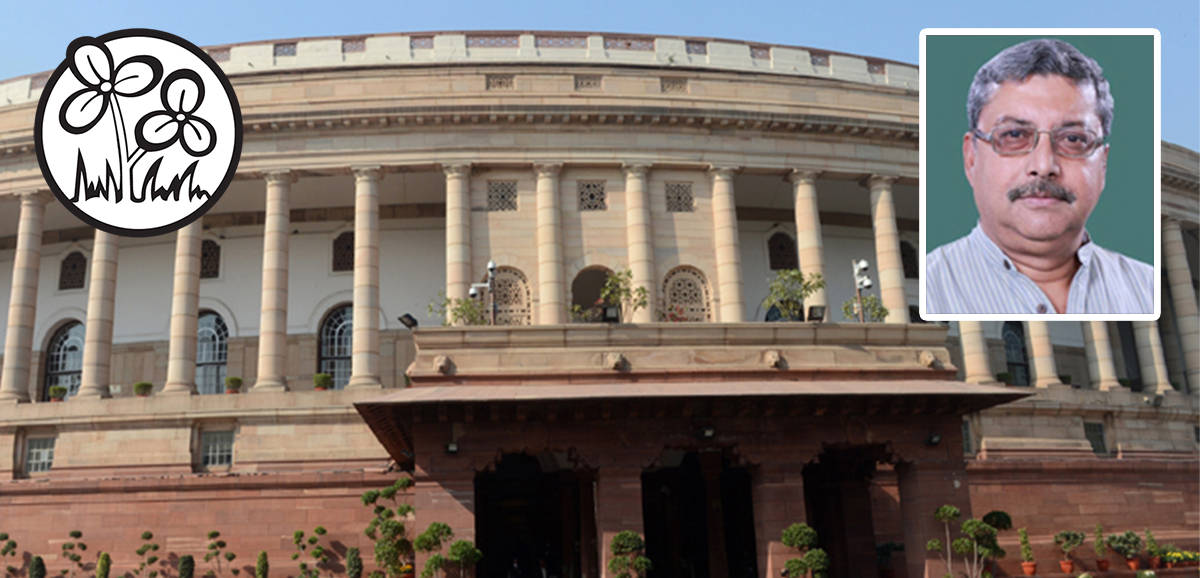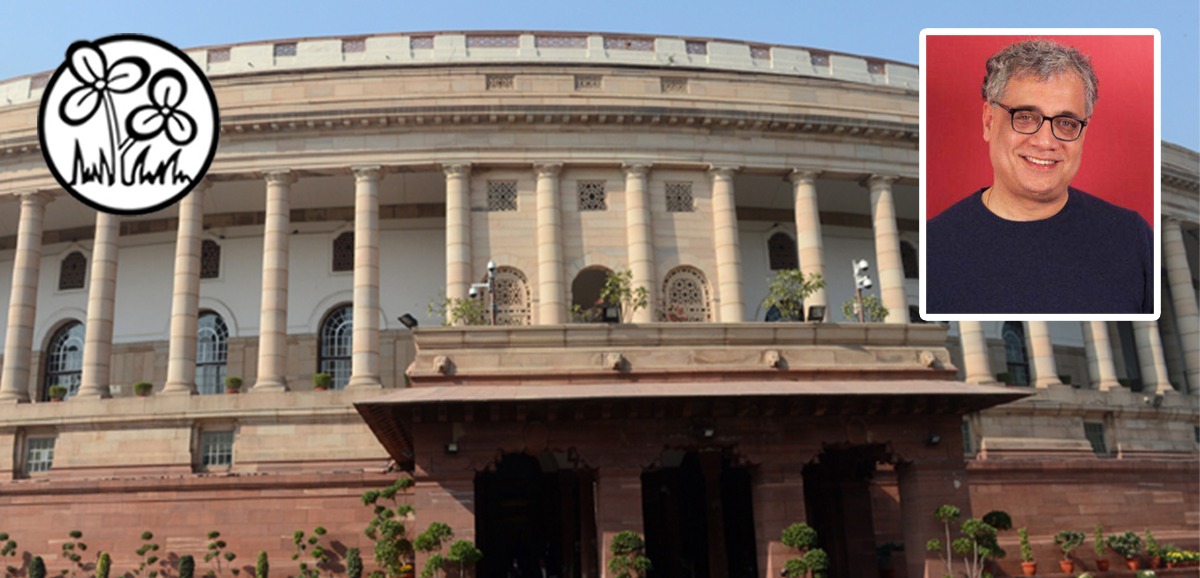Mr. Deputy Chairman, Sir, I thank you very much for giving me this opportunity to speak. Through you, I thank the Minister for being present to listen to our woes. This is a subject that affects all of us, but where the State of West Bengal is concerned, there are many other issues also which we would like to raise; we have been raising them, like the federal structure, North-East including Meghalaya, unemployment, price rise, misuse of the Central agencies and the border issues with China. Since you have given me this chance of speaking on this.The special issue of climate change affects the coastal States of India the most. As you know, the immediate effect is the rise in the sea-level. One of the most immediate effects is the rise in the sea-level that we have been hearing of projections of apocalypse for the last twenty-twenty five years. The way we are proceeding, much of it might come true. We see the effects of it in the Sunderbans. The Sunderban is a very special area which is, apart from being a world environmental site and a world heritage site, it is one of the great examples of how nature controls us. That Sunderban today is gravely threatened by dissipation of the ocean which is again caused by
climate change. At periodic intervals, the Bay of Bengal is subjected to cyclones of a type that only two other zones in the world receive–the Gulf of Mexico and the U.S. Coast, and the Philippines. We are ravaged and, that means, today, Tamil Nadu has been ravaged and tomorrow Andhra Pradesh will be ravaged, Odisha has been ravaged, and the Bay of Bengal–West Bengal and Bangladesh–is ravaged with full cyclones like a magnet. But, nevertheless, what stops the sea from invading West Bengal is the mangrove plantation that we have. On the mangrove plantations, we don’t find the seriousness that we require. Ten-eleven years ago, we had Alia, a super cyclone that left behind a lot of misery. And till today, we have not received the payments. We have pleaded again and again, throughout this year, that we need to replant mangrove plantation saplings and that we need to grow the mangrove plantations more. But, there is no reply. The Rural Development Scheme was the minimum that we expected, but did not come through. After that, I would like to draw your attention to the deadly impact on crops. This one will be common to you, to me and to all of us. You know what happened with this super heat this year, from the middle of April. The wheat crop got parched, shriveled up and the procurement has been about five per cent less. Wheat was at five per cent less than last year. I think it was four and a half per cent less than last year and I raised this issue again and again and it is a very dangerous thing. After that, the heat wave was followed by delayed monsoons. West Bengal is a victim of this delayed monsoon like many other States. What happens in a delayed monsoon for the paddy crop is that you are unable to cultivate it at the time that nature has given and you are forced to contract your contract activation period from a good 120-day crop to an 85-day crop and productivity comes down. This is all an effect of climate change and we better realize that we are all contributing to it. That is the worst part of it. We can’t blame the elements of nature all the time. I had mentioned to the hon. Food Minister about our food stocks and he told very emphatically that it is very satisfactory. I have reasons to believe that it is not as satisfactory because the procurement of kharif and the yield of rabi
is sensitive enough to worry. This is a national problem. So, we need not score points on each other. One of the World Bank’s Reports that came out, — the hon. Minister, I am sure knows about it, — which says, “the Climate Investment Opportunities etc., paints a picture that is very, very dangerous.” New Delhi had 47 degrees in April which was unprecedented. We have gone through extraordinary spikes in
temperature, but the World Bank predicts that this is only child’s play. Through the G-20 Climate Risk Atlas, they have said that heat waves across India were likely to last 25 times longer by 2036. Many of us hope to live till 2036. So, by 2036, — not me, I am not talking about myself, I am talking about Imran — we are likely to last 25 times more. I would beseech of the Minister that even if half the figure is true, if given by the JT Climate Report, what are we doing about it? Carbon emissions remain extremely high and the IPCC’s worst case emission scenario puts India at one of highest risk countries. We know everything about it. Up to 75 per cent of our workforce, which is 380 million people are exposed to what we call heat-exposed labour. Dr. Amee Yajnik just spoke about it. The point is, India has also the additional disadvantage, from this point of view, from generating one of the highest humidities in the world, being a tropical climate. So, it makes us worse than many others. The bottom line is that they say that about five per cent of India’s GDP is at risk. Will somebody please clarify; is five per cent of India’s GDP at risk? We talk about six per cent and seven per cent and quarrel for seven months, whether it will be seven per cent or 7.1 per cent! अगर इस बीच में5 परसेंट आ जाए, तो कहाँरह गए? 2 परसेंट! इसके बारेमेंभी बात करनी चािहए। So, we need to understand that we have to go through certain cold chain facilities and the cold chain facilities hardly cover five per cent, but without
this cold chain facilities, our pharmaceuticals and vaccines would be destroyed. Many of our high value crops would be destroyed and one
disruption, thanks to our heat wave, means perishment. What are the figures? They said that in Covid-19, India lost approximately 20 per cent of temperature sensitive medical products and 25 per cent of vaccines were destroyed due to broken cold chains.So, I am putting forward this picture before the hon. Minister who is well aware of this, but the response is what we see. I am coming to that part of it. There are reports how this year’s heat wave was affected. Sir, only in the first nine months, we have lost 2,775 lives! We have affected 1.8 million hectares of crop area! More than 4 lakh houses have been affected! Sir, India recorded extreme weather events for 241 days out of 273 days this year! We are not talking about tomorrow or the day after; we are talking about this year! We have gone through the extreme
weather events for 241 out of 273 days. Out of these, Madhya Pradesh went through the worst, followed by Himachal Pradesh and Assam. Sir, this is what we are going through. But, more than this, the cause of alarm that we have on this side of the House is that there is dualism in the Government. I cannot use the word ‘hypocrisy.’ It may be a little too harsh. There is dualism in the Government policy. While there is energy for development, there are certain energies even for environment which I don’t deny. But, there are, at the same time, events like 130 sq. kms. of the most ecologically fragile region of the Great Nicobar Islands being put to slaughter, put to slaughter, and, Sir, no one is bothered about it! So, we have, what I call, these erratic movements. You are doing something about environment here. I must say that the hon. Minister has done an excellent job at Sharm El-Sheikh by getting the Western countries, at least, to agree
to India’s proposal. I say it is good. But, at the same time, his Ministry is giving licences, his Ministry is permitting the slaughter of forest land! The most ecologically fragile Himalayas are being put in some sort of tourism! Sir, you cannot have dualism. You cannot use your left hand and right hand to negate each other. But, that is what is going on. If we make a list of number of deviations that this Ministry has made in the last 5-7 years on the issue of environment that would call for a special discussion and I would be happy to speak on that.Sir, the figures that I have mentioned are alarming and fossil fuels are the root cause of it. It is just about 170 years old. Much of the developed world used it 170 years ago, 150 years ago and we, in the under-developed part of the world, at that point of time, using it for the last
100 years. It is not the end of infinity. We are inviting the next ice age. The ast Ice Age came about 11,700 years ago. And, we are hastening the process towards the next ice age that is the least I can say. But, I am glad that, at least, the Government at COP-27 in Sharm El-Sheikh could come to some common understanding.I would submit, Sir, that special fiscal measures be introduced and special taxation measures needed if we want to build up the fund. Thank you.









